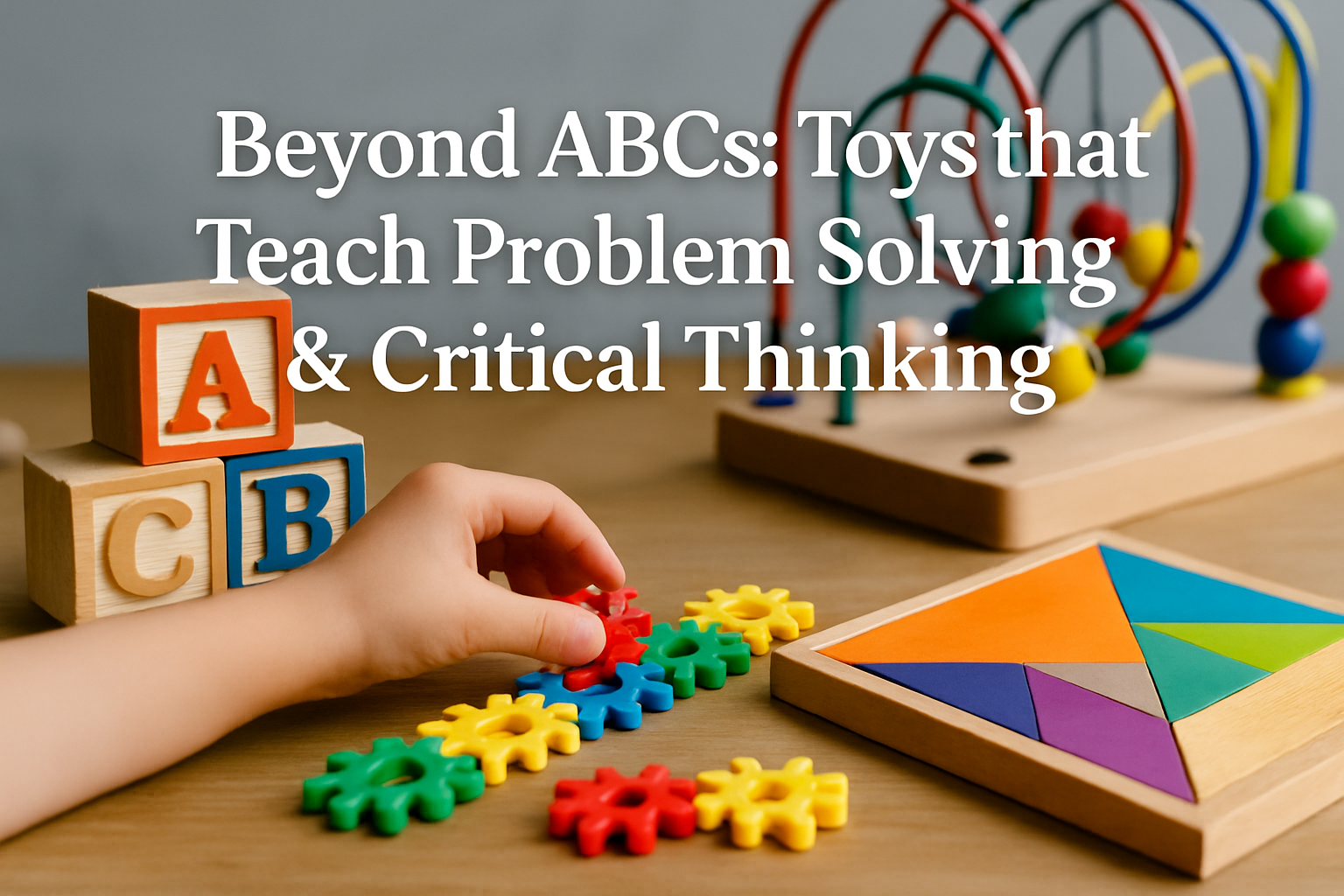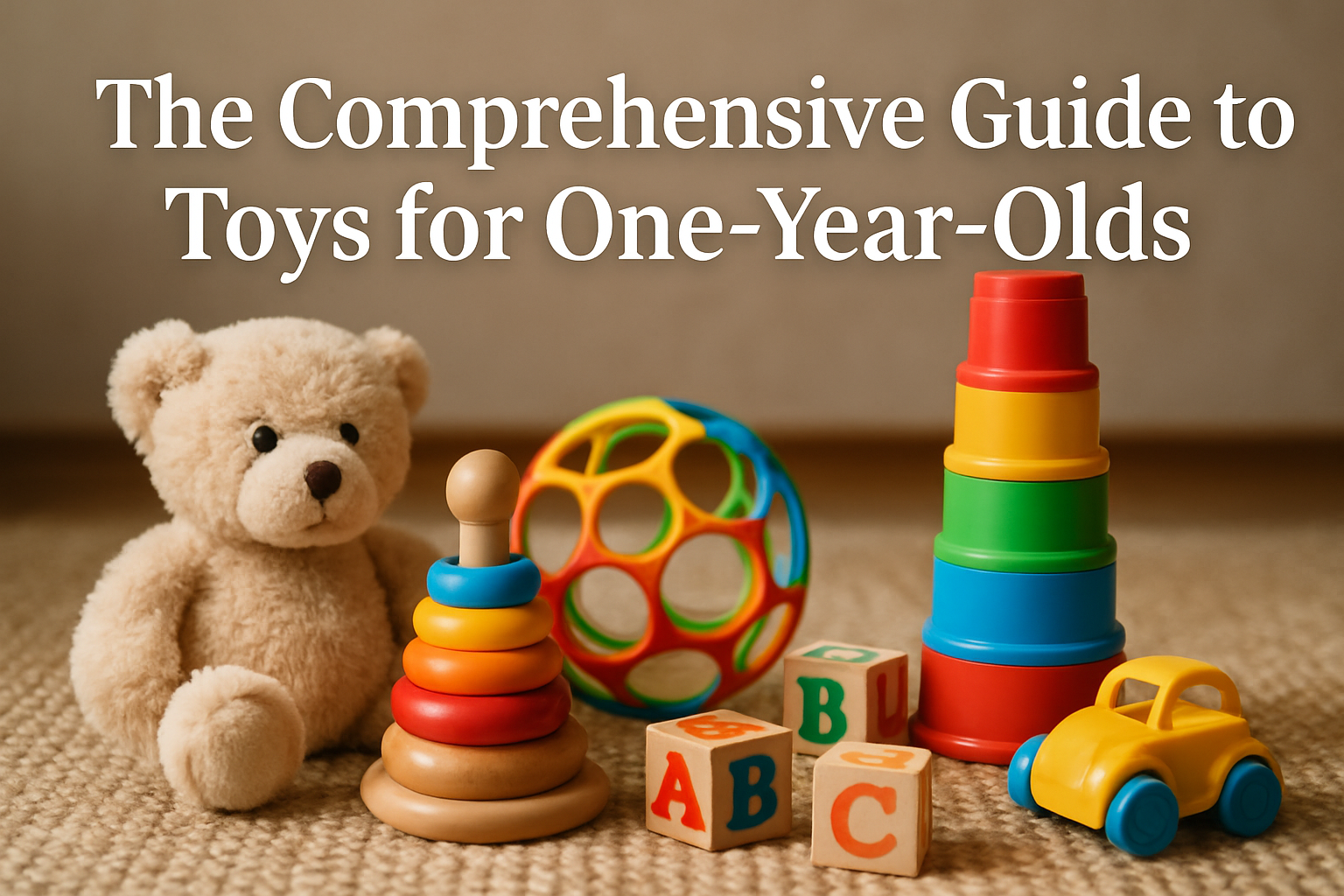The Comprehensive Guide to Toys for One-Year-Olds
Importance of Educational Toys Educational toys play a significant role in a...

Add description, images, menus and links to your mega menu
A column with no settings can be used as a spacer
Link to your collections, sales and even external links
Add up to five columns
Add description, images, menus and links to your mega menu
A column with no settings can be used as a spacer
Link to your collections, sales and even external links
Add up to five columns

Educational toys play a significant role in a child's development, serving as crucial tools that foster essential skills such as logical thinking, creativity, and problem-solving abilities. By engaging with these toys, children can navigate challenges that emulate real-world situations, providing them with a foundation for understanding concepts and developing cognitive functions. Whether it’s through puzzles, construction sets, or interactive games, these toys can facilitate a hands-on learning experience that enhances a child's natural curiosity and desire to explore.
Through structured play, educational toys help cultivate reasoning skills in children. When children face challenges presented by a toy, they learn to think critically about the best approach to solve them. For instance, when constructing with building blocks, a child must plan out their structure, which nurtures their logical thinking and foresight. This process not only helps them understand spatial awareness and geometry but also encourages them to think ahead and evaluate various outcomes based on their decisions. In essence, these toys act as catalysts for the child’s intellectual growth, aiding in their ability to analyze situations and make informed choices.
Furthermore, educational toys are instrumental in enhancing cognitive development and promoting engagement. These toys captivate a child's attention and stimulate their minds, making learning enjoyable rather than a chore. For example, role-playing toys can immerse children in imaginative scenarios where they must think on their feet and make quick decisions. This playful form of learning can be incredibly beneficial, as it helps children develop strong cognitive skills, such as memory retention and critical analysis. Thus, the importance of educational toys extends far beyond mere entertainment; they are foundational in preparing children for future academic and life challenges.
Toys are not merely objects of amusement. They play a significant role in shaping a child's development. One major benefit of educational toys is their ability to nurture logical thinking. Toys that promote structured play, such as building blocks or game sets, are designed to encourage children to reason through challenges. These activities require kids to think critically, identify patterns, and devise strategies—skills that are core to logical reasoning. For instance, when a child engages with puzzles, they are not only trying to fit pieces together but are simultaneously learning how to analyze the situation, anticipate outcomes, and solve problems effectively. This structured approach to play helps cultivate a mindset that thrives on reasoning and logic.
Moreover, educational toys significantly enhance creativity. Open-ended toys allow children to unleash their imagination, transforming simple play into an endless pool of possibilities. Art supplies, building sets, and storytelling games provide platforms for expressive creativity. These toys encourage kids to experiment, think outside the box, and come up with unique solutions to challenges. For example, a building set can be manipulated in various ways to create anything a child envisions, fostering innovation and inventive thinking. This unrestricted play empowers children to explore their interests and express themselves freely, contributing to their overall emotional and intellectual growth.
In addition to fostering logical thinking and creativity, educational toys play a vital role in developing real-world problem-solving skills. Interactive games are particularly effective in teaching children how to tackle problems practically. When kids engage with role-playing and simulation-based toys, they find themselves in scenarios that reflect real-life situations. This experience prepares them for decision-making and equips them to face similar challenges in the future. Through these interactive experiences, children learn how to evaluate options, weigh consequences, and make informed choices. The ability to navigate real-world problems, cultivated through playful engagement, helps shape confident and competent individuals ready to take on life's challenges.
Toys play an essential role in the development of children, acting as tools for fostering logical reasoning and creativity. When children engage with various toys, they are not merely playing; they are also enhancing their cognitive abilities. For instance, building blocks encourage spatial reasoning, while puzzles help develop problem-solving skills. Through these activities, children learn to think critically and devise strategies, laying the foundation for more complex thought processes in the future.
Investing in educational toys can yield significant long-term benefits for a child's cognitive skills. Educational toys are designed to stimulate cognitive functions, encouraging children to explore and understand the world around them. For example, toys that require planning and sequencing can help improve executive functions, which include working memory, attention control, and mental flexibility. As children engage with these toys, they become more adept at thinking ahead and considering different possibilities, invaluable skills for their overall development.
Moreover, the influence of toys extends beyond cognitive development; they also contribute to emotional and social growth. When children play together with toys, they practice sharing, cooperation, and empathy. This interaction fosters their social skills and helps them learn about relationships. As children negotiate and cooperate during play, they develop a sense of community and learn to navigate social dynamics. In this way, toys serve not just as objects of fun, but also as instruments that facilitate essential life skills, enriching their overall developmental experience.

Importance of Educational Toys Educational toys play a significant role in a...

Importance of Educational Toys Educational toys play a significant role in a...
Sign up for updates, sneak peeks and a coupon for 10% OFF your first order!